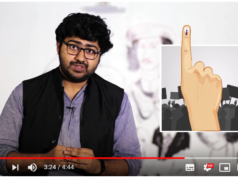What would be the Uniform Civil Code or personal law under gram swarajya or in the village republics that Mahatma Gandhi championed? It would probably resemble the one that prevails in Anna Hazare’s Ralegan Siddhi. If you violate the code, say by consuming liquor, you would be ostracised or even beaten up in public.
The khap panchayats of Haryana are another example. Their personal code is very specific and differentiates among groups, families and individuals on the basis of gotra, gender, vocation, before puberty and after puberty, personal status like unmarried, married or widow. It is as if the code defines and highlights minute differences among people and prescribes exact rules or norms that each “differentiated individual” must follow. It is organically evolved by and for a specific community that happens to live in one geographical area.
In a village republic or khap panchayat, “we are all our brothers’ keepers”. The “organic evolution” or “community specificity” could often mean that the code of one village would make little sense to another village a hundred kilometres away.
Civilisational progress, however, is made by separating the personal and the political, by circumscribing a large personal domain, and by allowing only the necessary minimal powers to the political or collective domain. We invented the idea of a Constitution to protect the personal domain and to define as precisely as possible the powers of the community. We also invented a mental technique to decide what should or should not be written in the Constitution. This technique has been used by philosophers and political economists to debate the proper contents of a Constitution.
Adam Smith called it the “impartial spectator”. Imagine that you are an impartial spectator and then think about what is proper behaviour and what laws or rules you would want to impose on yourself and others. John Rawls used “behind the veil of ignorance”. To decide the right behaviour or laws, put yourself behind the veil of ignorance where you do not know your status in the real world—whether you are a man or a woman, rich or poor, lower caste or upper caste. And then you think about the rules for a political and economic system. The public choice theorist James Buchanan made a variation on Rawls and coined the term “behind the veil of uncertainty”. Nobel laureate F.A. Hayek relied on the “generality principle” to arrive at the “constitution of liberty”. These are different mental techniques to decipher the right rules.
To understand the significance of this technique, and more importantly, the underlying principle of generality in constitution drafting, let’s take the famous phrase from the United States Constitution: “All men are created equal.” In 1776, most people understood that it meant only white men. Imagine if Thomas Jefferson, who prepared the first draft, wanted to be precise and not general, he would have written: “All white men are created equal.” How would American history have unfolded then? After the women’s suffrage movement of the early 20th century, the Constitution would have been amended: “All white men and women are created equal.” After the civil rights movement, it would have to say, “All white and black (or coloured since yellow and brown were also present by then) men and women are created equal.” Then comes the transgender movement…you get the picture.
The American Constitution uses the “generality principle” far more extensively than the Indian Constitution. The governing principle of the Indian Constitution seems to be the group-differentiated rights and privileges based on religion, caste, tribe or backward status and even geography (Jammu & Kashmir and the north-eastern states are treated differently). Herein lies the root of the battle between the personal laws and a uniform civil code.
Before I further elaborate on the libertarian perspective on the uniform civil code debate, let me highlight the significance of the choice of terms and phrases. Imagine if the established practices and norms of different religious communities were referred to as community or personal code, as opposed to personal law—Muslim Personal Law or Hindu Personal Law. The use of the term “law” has really diverted the attention from what these practices and norms actually are. It should have been Muslim Personal Code or Hindu Personal Code.
The term “law” instead of “code” elevates the status of the practice. More importantly, it implies that the enforcement would be done by the state instead of the community. Who should be responsible for enforcing a personal or community code? The community that made and is practising the code. But when it is called a law, the implication is that the state would be responsible for enforcing it and not the community. The code may be based on “divine law”, or the laws in the Quran or the Vedas, the interpretation and practice of the code are by the community, and therefore open to evolutionary or revolutionary change over time.
If it was commonly understood and accepted that religious practices are a community code and open to change by the community, they would probably have never been mentioned in the Constitution (even as Directive Principles of State Policy). And independent India would not have attempted to give legal status to any personal code. We would then have adhered to the “generality principle” in the drafting of the Constitution and the laws.
It is ironic that the uniform civil code is called a code and not a law, while in reality it would be a law that would be passed by the Parliament. It should be called uniform civil law!
The imprecise use of the term “law” has created further confusion between the rights and responsibilities of the citizen of a polity made of diverse communities and the rights and responsibilities of the member of any of these communities. We all have multiple identities and a community around an identity would have its own distinct norms and practices. These norms and practices are enforced by the community and not by the state.
Two liberal or libertarian principles are most relevant to the uniform civil code debate. One, equality before the law—all are equal in the application of the law. This is the “generality principle”. This liberal principle is now widely accepted, even by non-liberals or anti-liberals.
The second principle, which I think is uniquely libertarian, is that there should be no laws about capitalist acts among consenting adults. The state shall not intervene in any voluntary exchange between adults. It can also be understood in terms of “victimless crimes”. No party involved in the “crime” sees himself as a victim but the law ascribes victimhood to one of the parties; actually the “crime” exists only because of the law. The libertarian principle is that if there is no victim or no one claims to be a victim, there is no crime! And so there should be no law about it. Think of the sex or drug trade. Both parties in the trade engage voluntarily and none thinks of himself or herself as a victim.
The religious norms and practices of Islam or Hinduism or Sikhism are among consenting adults. As long as both parties or all parties voluntarily follow the norms, no one should have any objection. The community would have evolved ways and means of enforcing its norms, from social ostracism or expulsion.
As long as the enforcement mechanisms do not violate general laws about life, liberty and property, no one should have any objection. The enforcement mechanisms should comply with the constitutional principles of liberty, justice and equality.
It is important to note that the norms themselves do not have to comply with constitutional principles, but the enforcement of the norms must comply. I could start a new cult of “Parthism” that requires that all women must work outside and all men must read a book a week and take care of the family and the home. As long as people join Parthism voluntarily and live by the norms, no one should have any objection. No secular or women’s rights or men’s rights group should be able to challenge the Parthism norms. However, I should not be able to use any illegal means to keep any member from leaving the cult. If I do, then the rights of the member as a citizen of India come into play and her obligations as a member of Parthism come to an end.
This is the crucial distinction between rights and responsibilities as a citizen of the polity and those as a voluntary member of a community or a cult. This is where the significance of the “generality principle” comes into play—in helping to draw the boundaries between individual as a citizen and as a member of a group. It does not matter which identity of the individual gives rise to the group—religion, gender, caste, class or cycling, belly dancing or wine tasting.
I may choose to live in Ralegan Siddhi or even in a village ruled by a khap panchayat or I may be born there (and therefore have no choice.) As long as the boundaries between a citizen and a community member are clear and as long as the state protects my rights as a citizen, the contents of the personal “laws” or codes or norms do not matter. Libertarianism is about clear demarcation of the boundaries between the personal and the political. It is about individual choice and state accountability.
Post Disclaimer
The opinions expressed in this essay are those of the authors. They do not purport to reflect the opinions or views of CCS.






